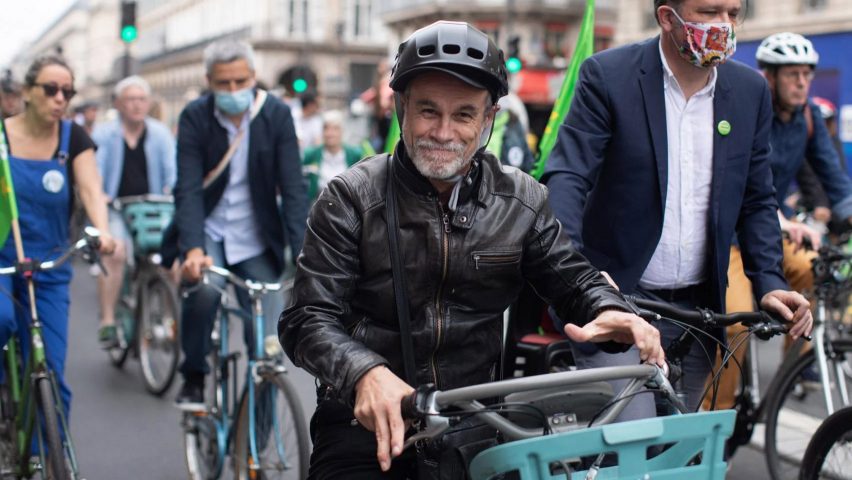
UK prime minister's 15-minute city ban "baffling" says concept creator
Urbanist Carlos Moreno has urged UK prime minister Rishi Sunak to rethink his stance on 15-minute cities following the announcement that he will stop councils implementing the concept.
In a statement sent by Moreno to Dezeen, he said that Sunak's position on cars "raise deep concerns" and urged him to rethink his position on the 15-minute city concept.
"Personally, as the initiator of the 15-minute city concept, which is widely recognised internationally, I feel compelled to express my concerns," he said.
"I solemnly urge the Prime Minister to reconsider his stance, in hopes of fostering constructive dialogue, avoiding rash statements that cater only to a segment of the population, specifically car enthusiasts."
The 15-minute city ban "tantamount to aligning" with conspiracy theorists
French-Colombian scientist Moreno warned that Sunak's attacks on 15-minute cities could add fuel to the conspiracies surrounding the concept. Although widely debunked, some people fear that the concept aims to restrict people from travelling around the city by keeping them within designated zones.
"Last spring, my family and I faced harassment, including death threats, from conspiracy theorists fueled by false information, promptly debunked by reputable media outlets," he said.
"Associating the 15-minute city again with so-called liberty-restricting measures is tantamount to aligning with the most radical and anti-democratic elements of this movement," Moreno added.
The 15-minute concept was first revealed in 2016 and was awarded the Obel Prize in 2021. It aims to improve quality of life in urban areas by creating decentralised cities where food, health, education and cultural facilities are accessible to people within 15 minutes walk or cycle.
Concept "seeks to reinvigorate our neighborhoods"
"The 15-minute city is a human-centric vision aimed at promoting local services, reducing mandatory daily commutes, stimulating the local economy, enhancing social interactions, and providing more public spaces, promote an urban health and the climate resilience," explained Moreno.
"It seeks to reinvigorate our neighborhoods, advocate for chosen mobility over enforced mobility, and reduce our carbon footprint," he continued.
"It has been widely adopted around the world, and many mayors and international organizations of mayors and local governments are implementing it. It's also a full-fledged scientific research topic, and today we have a globally mobilized community working to delve deeper into this concept."
Moreno was also critical of the UK government's wider plans to "back drivers" and slam the brakes on "anti-car measures" as they are in opposition to current climate challenges.
"The recent statements from the British government, especially those from the prime minister Rishi Sunak, regarding his long-term assistance plan for motorists, raise deep concerns," said Moreno .
"They signify a baffling step back for a nation facing, like all others, the major challenges of this century, primarily the climate emergency," he continued.
"Whether it's about urban speed restrictions, dedicated bus lanes, LTNs, leniency towards road infractions, or decisions urging cities to stop adopting the 15-minute city model, these stances overlook the pressing issues of a 'boiling world'."
The 15-minute city concept had previously been criticised by another UK politician, Nick Fletcher, in a debate in the House of Commons.
However, many cities around the world have adapted it, including Edmonton, Canada, where planner Michael Strong said it uses "age-old concepts".